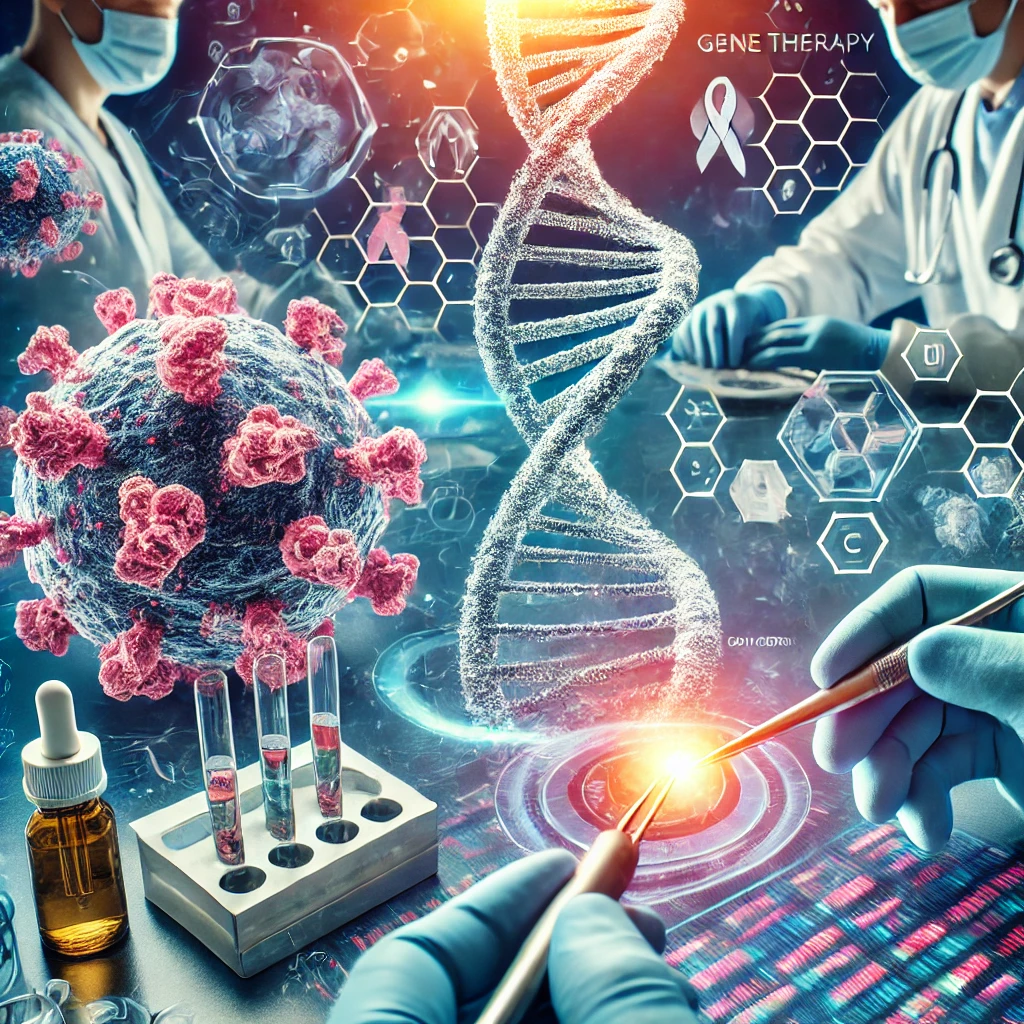What Gene Treatments Help Fight Cancer?
Article Source: Gene Therapy for Cancer

Why you should care
Gene therapy is changing the way we fight cancer. Unlike traditional methods like chemotherapy or radiation, gene therapy targets the root causes of cancer at the genetic level. This approach offers fewer side effects and more personalized treatments, giving new hope to cancer patients worldwide.
Answering the question… What Gene Treatments Help Fight Cancer?
Gene therapy involves altering the genetic material in cells to either fight or suppress cancer. One prominent method is CAR T-cell therapy, where the patient's T-cells are modified to attack cancer cells. Other methods involve viral vectors that insert therapeutic genes into cancer cells or using gene-editing tools like CRISPR to precisely correct mutations.
How was the study done?
Researchers conducted clinical trials on patients with various forms of cancer, particularly focusing on CAR T-cell therapy and gene-editing techniques. They also used viral vectors in experimental settings to introduce genes that could enhance the immune system’s response to cancer. Data was collected from patient outcomes, immune response analyses, and laboratory simulations of gene interactions with cancer cells.
What was discovered?
- CAR T-cell Therapy: CAR T-cell therapy demonstrated impressive success rates, with studies showing 72% remission in patients with certain types of blood cancers, particularly acute lymphoblastic leukemia and lymphoma.
- Viral Vectors: Trials with viral vectors indicated that 30% of patients experienced a significant reduction in tumor size, as the modified genes made cancer cells more susceptible to destruction by the immune system.
- Combination Therapy: When gene therapy was combined with conventional treatments like chemotherapy, survival rates increased by 40% in solid tumors such as breast and lung cancer.
- CRISPR and Precision Gene Editing: CRISPR technology is rapidly becoming a key tool in cancer treatment, with researchers finding that it can precisely target and repair mutations in cancer-causing genes. This tool could be applied to nearly 50% of all known cancers, making it a highly promising avenue for the future.
- Immune System Boost: Some gene therapies boosted immune response in ways that helped patients avoid relapses. Studies showed that 25% of treated patients had stronger, longer-lasting immune defenses against cancer recurrence compared to traditional treatments.
Why does it matter?
Gene therapy has the potential to revolutionize cancer treatment by offering more effective, personalized options with fewer side effects. As technologies like CAR T-cell therapy and CRISPR gene-editing advance, they could not only treat but potentially cure various cancers. This is a crucial development in the global fight against a disease that affects millions of people each year.
